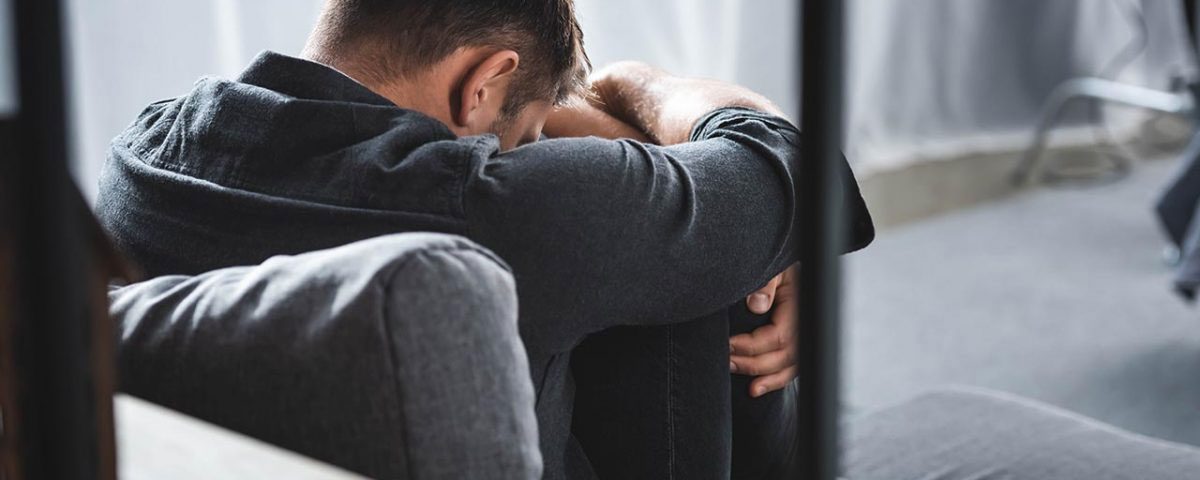


How to Handle Social Anxiety at Family Gatherings
February 3, 2021

Anhedonia and Depression
February 3, 2021Top 10 Panic Attack Triggers


Anxiety is a mental disorder that’s characterized by persistent and intense feelings of fear, worry, or tension.
Many show hidden symptoms of anxiety disorders and don’t realize it. The most common symptoms of anxiety are chest pains, increased heart rate, rapid breathing, and panic attacks. A panic attack – a sudden episode of intense fear when there is no real or apparent danger – may occur when a person’s anxiety peaks. The things that trigger panic attacks may be different for everyone; however, if you’ve been diagnosed with an anxiety disorder or are more prone to panic attacks, there are common panic attack triggers that you should avoid.
10 Most Common Triggers for Panic Attacks
If you suffer from anxiety, it can be difficult to identify things that trigger panic attacks. Because a panic attack can occur for no apparent reason, it can be hard to manage your symptoms. That’s why it’s important to identify any anxiety triggers you may have. The team at our mental health treatment center in Boca shares the top 10 panic attack triggers.
Stress
Stress is number one on the list of top 10 panic attack triggers for a reason. Stress can be caused by a wide range of things, making it difficult to avoid. Work, school, family, health, and more could all be stress-inducing. As a common panic attack trigger, it’s important to practice self-care and learn healthy coping mechanisms for managing stress. This could help you avoid experiencing anxiety symptoms.
Pre-existing health conditions
Being diagnosed with a health condition can be upsetting and stressful. Depending on the severity of your condition, you may worry about taking care of your loved ones and staying fit enough to work. A positive diagnosis can easily cause a panic attack. In this case, you can prevent panic attacks by staying in contact with your doctor and by following their direction.
At Banyan Mental Health, we offer a variety of mental health treatment methods that can help you manage your anxiety symptoms.
Certain medications
Medications for birth control, cold and flu symptoms, and weight loss can cause anxiety and induce panic attacks. This is often a result of the medication’s side effects. Feeling physically unwell can trigger a panic attack. If you’re continuing to experience symptoms of anxiety while taking certain medications, discuss possible alternatives with your doctor.
Substance abuse
Drugs like cocaine, methamphetamine, benzos, marijuana, and heroin can cause psychosis, including symptoms of anxiety. Especially when someone goes through withdrawal symptoms, they may experience a panic attack. Treatment for co-occurring disorders can address symptoms of both addiction and anxiety disorder.
Caffeine
Many people can’t get through the morning without their usual cup of coffee, but for others, caffeine worsens their anxiety symptoms. Caffeine causes alertness and increases your heart rate. In more extreme cases, it can cause someone to experience a panic attack. This can be avoided by substituting coffee or tea with non-caffeinated drinks.
Social events
While we may sometimes feel uncomfortable in certain social situations, some people genuinely suffer from a social anxiety disorder. When you’re surrounded by a large group of people or lots of noise, you may feel overwhelmed. Events that require social interaction or meeting new people can trigger a panic attack. As you’re working on developing healthy coping strategies, you can always bring someone along with you when you attend these events.
Reminders of traumatic experiences
If you’ve endured a traumatic experience in the past, chances are that you may struggle with anything that may remind you of it. Coming across particularly uncomfortable or specifically traumatic situations can cause panic attacks. Post-traumatic stress disorder (PTSD) is linked to anxiety, and people who experience symptoms of both disorders can benefit from PTSD treatment.
Diet
Food can affect the way your brain functions throughout the day. Eating protein, complex carbs, and drinking lots of water can help you maintain your blood sugar levels and even increase the levels of a neurotransmitter called serotonin. Serotonin produces a calming effect in the brain, which can help prevent a panic attack. Getting your full eight hours of sleep every night is also important.
Financial stress
Worries about debt, bills, and savings can easily trigger anxiety. You can manage this panic attack trigger by seeking out advice from a financial advisor. Feeling unorganized also plays a role in anxiety related to finances, and an advisor can help sort out your current situation and help you create a solid plan.
Arguments or conflict
A rocky relationship with a loved one or a big argument are common panic attack triggers. Conflicts can be especially stressful because you need to actively work to find a solution. You’re also often reliant on the other party in order to come to an agreement or to make amends, which might make you feel as if you don’t have complete control over the situation. Talking with a therapist and being honest with the other party can help.
While occasional moments of anxiety are common, persistent feelings of worry or fear are not. These may be signs that you have an anxiety disorder. If this is the case for you or someone you know, we’re here to help. Call us today at 888-280-4763 for more information about our facility and programs.
Related Readings:







